“Soft Skull Press, the indie publisher that was rescued from financial ruin when it was acquired by the Berkeley-based publisher Counterpoint in 2007, became a West Coast outfit on Friday after 17 years in New York with the closing of its office in the Flatiron District. Both of its full-time staffers, editorial director Denise Oswald and associate editor Anne Horowitz, were laid off, and titles that were already in the pipeline have been reassigned to editors at Counterpoint…” Read the rest on The New York Observer Media Mobster.
New Lit on the Block :: and/or
Editor-in-Chief Damian W. Hey, Art Editor George Kayaian, Literary Editor Tracy Kline, and Managing Editor Mike Russo are the working force behind and/or, a PDF (Issue) and print journal “for creative experimental writing and/or innovative graphic art.”
Hey writes in the editorial for the first issue: “What is experimental to one person may be old hat to another. In general, we have sought to include works that represent as broad an experimental spectrum as possible. We have given preference to those works that provoke the reader or the viewer to question some aspect of tradition, convention, or expectation. We have looked for writing that teaches the reader how to read it, and art that teaches the viewer how to view it. And, in our evaluation of submitted work, we were not beyond the occasional outburst of: we know the good stuff when we see it!”
The first 100+ page issue of and/or features works by Carol Agee, Tanner Almon, George Anderson, Michael Andreoni, Jenn Blair, Ric Carfagna, James Carpenter, Brian Cogan, Kirk Curnutt, Nicole Dahlke, Arkava Das, Tray Drumhann, Joseph Farley, Adam Field, Howie Good, Thomas Gough, Aimee Herman, Jared Joseph, Mark L.O. Kempf, Ron. Lavalette, Donal Mahoney, Ricky Massengale, RC Miller, Antoine Monmarche, Kyle Muntz, Christina Murphy, Matt Parsons, Dawn Pendergast, Michael Lee Rattigan, Francis Raven, Mary Rogers-Grantham, Christine Salek, Chad Scheel, James Short, Bruce Stater and Lori Connerly, Felino A. Soriano, Orchid Tierney, David Tomaloff, Echezona Udeze, Justin Varner, and Christopher Woods.
The journal seeks submissions from writers and/or other sorts of artists whose work openly challenges the boundaries (mimetic, aesthetic, symbolic, cultural, political, philosophical, economic, spiritual, etc.) of literary and/or artistic expression. The deadline for Volume 2 is March 1, 2011.
Word & Film Website
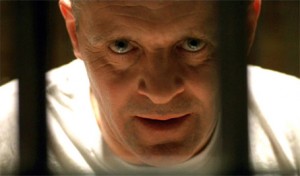 Random House has created a new website Word & Film: The Intersection of Books, Movies, and Television and includes trailers and interviews for both theater films and television.
Random House has created a new website Word & Film: The Intersection of Books, Movies, and Television and includes trailers and interviews for both theater films and television.
Brownstone Books Closes
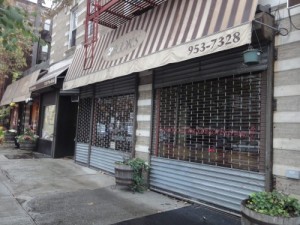 Bed-Stuy Do or Die: Brownstone Books in Brooklyn, NY shuts down.
Bed-Stuy Do or Die: Brownstone Books in Brooklyn, NY shuts down.
Assistantship in Community Poetics
Mills College (Oakland, CA) Graduate Assistantship in Community Poetics – a new two-year, full-tuition assistantship to one student pursuing an MFA degree in poetry beginning Fall 2011. Deadline for application is December 15.
On Teaching and Pain
“What teacher has not felt this pain—the pain of the audible yawn from the kid in the back row just as you launch into the lesson you worked on for an hour and a half—or worse, the lesson you spent only ten minutes preparing and are now feeling vulnerable about? This is not acute pain, not the pain of discovering that a student has craftily plagiarized an essay for your class, or reading a mean-spirited comment on a course evaluation, or being insulted to your face. This is the low-grade fever, the chronic hypertension of teaching, the apathy, dismissiveness, and dehumanization I suspect are part of most teachers’ everyday lives.”
From Strange Flowers and Gubbinals: On Teaching and Pain by Frank Kovarik
Read the rest – it does offer hope.
C4’s Best of the Web Fiction Anthology
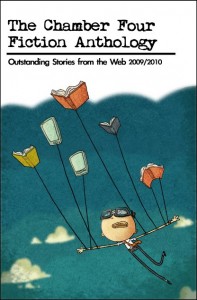 Chamber Four Fiction Anthology: Outstanding Stories from the Web 2009/2010 is available for free download (PDF and mulit-eReader formats) and includes 25 stories chosen by C4 editors for their “availability online and that hard-to-define but unmistakable hallmark of quality.” Full table of contents and author bios, as well as bonus content (interviews with Angie Lee, Roy Giles, Andy Henion, Scott Cheshire, and “Publishers Lie and Other Things We Learned From Publishing ‘The Chamber Four Fiction Anthology’”) is available on C4’s Anthology page.
Chamber Four Fiction Anthology: Outstanding Stories from the Web 2009/2010 is available for free download (PDF and mulit-eReader formats) and includes 25 stories chosen by C4 editors for their “availability online and that hard-to-define but unmistakable hallmark of quality.” Full table of contents and author bios, as well as bonus content (interviews with Angie Lee, Roy Giles, Andy Henion, Scott Cheshire, and “Publishers Lie and Other Things We Learned From Publishing ‘The Chamber Four Fiction Anthology’”) is available on C4’s Anthology page.
Authors whose works were chosen for the C4 Anthology: Andrea Uptmor, Angie Lee, Scott Cheshire, Alanna Peterson, Eric Freeze, Steve Almond, Sarah Salway, Svetlana Lavochkina, Valerie O’Riordan, L.E. Miller, B.J. Hollars, C. Dale Young, Andy Henion, Aaron Block, Steve Frederick, Trevor J. Houser, Roy Giles, Emily Ruskovich, David Peak, Castle Freeman, Jr., Ron MacLean, Corey Campbell, Taryn Bowey, Michael Mejia, William Pierce.
Passings :: JP Farrell
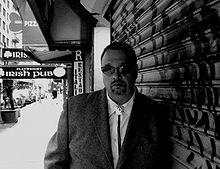 Publisher of Atonal Poetry Review, John Patrick (JP) Farrell had been hospitalized since October 19 and passed away Wednesday, November 3, 2010. Messages for the family can be left on the Vaughan Funeral Home website.
Publisher of Atonal Poetry Review, John Patrick (JP) Farrell had been hospitalized since October 19 and passed away Wednesday, November 3, 2010. Messages for the family can be left on the Vaughan Funeral Home website.
Hint Fiction on NPR
‘Hint Fiction‘ is the latest in literary downsizing: 25 words or fewer that hint at a story. Read/listen to the ‘long’ story of Robert Swartwood call for submissions the the anthology the that resulted – along with several examples (full-text, of course).
Essay: Reine Dugas Bouton “My Inner Latina”
“I’m a mix, a Mediterranean cocktail of sorts, like many people in New Orleans. My dad’s French and Italian; my mom’s Spanish with a touch of Welsh. The closest link I have to my ethnicity is my cousin in Los Angeles. Lisa is proud of her Latina heritage — she lives it. She spends time with her boisterous, voluble, in-your-face, never boring family; they dance at parties, make tamales for the holidays, speak in English with Spanish words sprinkled like bits of jalapeño into a salsa verde. Proud of who she is, Lisa’s got a spicy personality and speaks rapid fire.”
Excerpt from “My Inner Latina: Dancing toward a lost heritage” by Reine Dugas Bouto, published online in Etude: New Voices in Literary Nonfiction.
Narrative Literary Puzzler Haiku II
This week, Narrative’s Literary Puzzler invites participants to their second Haiku competition; send in a poem incorporating the theme of the fall season. Deadline: Noon on Sunday.
Contemporary Poetry Review Relaunch
Ernest Hilbert editor of the Contemporary Poetry Review from 2005 until 2010, bids the publication farewell as it “relaunches” into a new era as on online publication.
Censorship in Iran Publishing
“Figures from the Ministry of Culture and Islamic Guidance show that the country has some 7,000 publishing firms. Take just two of these companies – one of them says it has about 70 novels and short story collections currently pending approval from the censors. The other says it has had between 50 and 70 books awaiting review at any one time for the past two years.
“Censors…go through already published works as well as the never-ending flow of new ones, checking line by line to see whether they were compatible with the “core Islamic values” the new administration wanted to assert.
“In practice, though, the censors only look at literature, books on art, and works on literary criticism and theory, which account for about 40 per cent of all books published in Iran.”
Books Stuck in Iran’s Censorship Quagmire
By Omid Nikfarjam; source: Institute for War & Peace Reporting (IWPR)
Los Angeles Review on What Editors Have Read Too Much Of
The Los Angeles Review has posted “Freele Pesters: Installment 3” – notes from the third week of their fiction workshop. This one includes Fiction Editor Stefanie Freele Pesters in conversation with Nancy Boutin, Prose Editor, and Joe Ponepinto, Book Review Editor, answering the question: “What styles or techniques (prose) have you read too much of? not enough of?”
Also included is Heather Freese (Contributor – “The Popular Girls’ Guide To Sticking It To Your Friends” LAR Issue 6) answering the question: “Should a reader have to ‘understand’ a story?” as well as other questions on issues of style and technique (including the use of second person).
Week Two focused on “Narrative Tension and Anticipation in the Short Story” and Week One on “The Importance of Beginnings” – both of which can be found in the Archives.
Franzen Fans
 The newest issue of College Literature (General Issue 37.4 / Fall 2010) includes the essay “Assessing the Promise of Jonathan Franzan’s First Three Novels: A Rejection of ‘Refuge'” by Ty Hawkins (Ph. D., Saint Louis University). Frazen’s works cited in the essay: The Twenty-Seventh City, Strong Motion, The Corrections, “Mr. Difficult” and “A Word About This Book,” both from How to Be Alone: Essays.
The newest issue of College Literature (General Issue 37.4 / Fall 2010) includes the essay “Assessing the Promise of Jonathan Franzan’s First Three Novels: A Rejection of ‘Refuge'” by Ty Hawkins (Ph. D., Saint Louis University). Frazen’s works cited in the essay: The Twenty-Seventh City, Strong Motion, The Corrections, “Mr. Difficult” and “A Word About This Book,” both from How to Be Alone: Essays.
Adam Gussow and Blues English
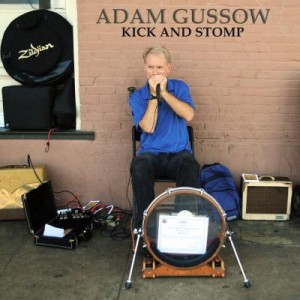 Adam Gussow: Ole Miss English prof by day, blues man by – well – day also: “I’ve always had a dual interests between the blues and literature,” Gussow said. “I treat blues lyrics like lyric poetry. I try to keep a balance situated between performance and critique.” Gussow’s solo album, Kick and Stomp, has just been released.
Adam Gussow: Ole Miss English prof by day, blues man by – well – day also: “I’ve always had a dual interests between the blues and literature,” Gussow said. “I treat blues lyrics like lyric poetry. I try to keep a balance situated between performance and critique.” Gussow’s solo album, Kick and Stomp, has just been released.
The Healing Muse – Content of Common Experience
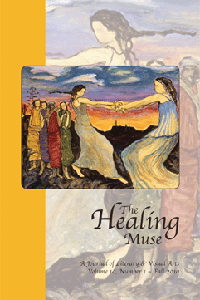 In the Editor’s Note for the Fall 2010 issue of The Healing Muse, Deirdre Neilen writes, “Our lives have their own unique roads to travel, but when the detour called Illness enters, we soon learn we have joined, willingly or unwillingly, a very large community with a language and a culture of its own that demands our attention and commitment…we become adept negotiators of hospital mores and insurance protocols, of treatment modalities and drug therapies; the mildest among us morph into warrior-advocates for our loved ones; we stand shoulder to shoulder with our nurses and physicians, our therapists, and our own research. And we write about the bartering, the begging, the rage; we’re not too proud to pray, to swear, to do whatever it takes to get a cure, an extension, a hope. We suffer – either as the person who is ill or as one who witnesses and cares for that one.
In the Editor’s Note for the Fall 2010 issue of The Healing Muse, Deirdre Neilen writes, “Our lives have their own unique roads to travel, but when the detour called Illness enters, we soon learn we have joined, willingly or unwillingly, a very large community with a language and a culture of its own that demands our attention and commitment…we become adept negotiators of hospital mores and insurance protocols, of treatment modalities and drug therapies; the mildest among us morph into warrior-advocates for our loved ones; we stand shoulder to shoulder with our nurses and physicians, our therapists, and our own research. And we write about the bartering, the begging, the rage; we’re not too proud to pray, to swear, to do whatever it takes to get a cure, an extension, a hope. We suffer – either as the person who is ill or as one who witnesses and cares for that one.
“Yet all this suffering somehow does not destroy us; we endure, and we incorporate it into the life we are trying to save, to maintain, to extend…”
And so begins this issue of The Healing Muse in recognition of its content, and the content of each and every issue. Hard core. Truthful. Honest. And recognizable, ‘relatable’ to so many of us.
New Letters – Fat America Thin Literary Art
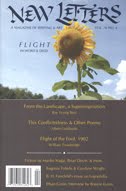 In “Grounded: An Editor’s Note” (full text online) in the newest edition of New Letters (v76, n4), Robert Stewart says, “As America gets fatter, it seems to want its art to become weightless.”
In “Grounded: An Editor’s Note” (full text online) in the newest edition of New Letters (v76, n4), Robert Stewart says, “As America gets fatter, it seems to want its art to become weightless.”
Ouch. But true. Read on.
“Kindle-like products seem fine enough, but marketing has induced many people I know into feeling guilty for continuing to prefer regular books and journals. I believe that physical matter in literary art, as in the universe, cannot be destroyed. One must know how, and sometimes where, to look. My institution’s library just celebrated the installation of a book ‘robot’ — sealed up, like Poe’s Fortunato, in a cave-like room—where the library will seclude a promised 80 percent of its books and print journals, accessible for request but not for browsing. We can browse cataloguing-in data; but books and journals on shelves, in aisles, belong to the physical world, due for a change. The library has its reasons, as a friend points out, trying to fulfill contradictory missions: to provide access and also preserve the materials. Articles and chapters on library reserve for student reading now must be digitized; so none of my own students need get up and actually enter the library. This weightlessness, I admit, weighs on me…”
And there’s more. Read the rest here.
NewPages Literary Magazine Reviews Posted
Check out the latest great post of NewPages Literary Magazine Reviews, including both new and established publications in print:
Annalemma
Chinese Literature Today
Crazyhorse
Fourteen Hills
The Meadow
Minnetonka Review
Natural Bridge
Paterson Literary Review
Salt Hill
Santa Clara Review
Santa Fe Literary Review
The Seattle Review
Yellow Medicine Review
If you are interested in writing literary magazine reviews for NewPages, visit the Reviewer Guidelines.
The AGNI Portfolio of African Fiction
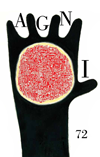 Coedited by E. C. Osondu and William Pierce, the AGNI Portfolio of African Fiction is a landmark gathering of stories from Djibouti, Nigeria, Uganda, South Africa, the Gambia, and elsewhere. “The AGNI Portfolio of African Fiction creates an unexpected portrait of the African continent—political, sexual, religious, commercial, and literary — by writers such as Abdourahman A. Waberi, Henrietta Rose-Innes, Helon Habila, Doreen Baingana, Chuma Nwokolo, Jr., and Monica Arac de Nyeko.” The portfolio will connect AGNI’s two venues this fall: half of the stories appearing in AGNI 72 (now available for purchase), and half available full text at AGNI Online.
Coedited by E. C. Osondu and William Pierce, the AGNI Portfolio of African Fiction is a landmark gathering of stories from Djibouti, Nigeria, Uganda, South Africa, the Gambia, and elsewhere. “The AGNI Portfolio of African Fiction creates an unexpected portrait of the African continent—political, sexual, religious, commercial, and literary — by writers such as Abdourahman A. Waberi, Henrietta Rose-Innes, Helon Habila, Doreen Baingana, Chuma Nwokolo, Jr., and Monica Arac de Nyeko.” The portfolio will connect AGNI’s two venues this fall: half of the stories appearing in AGNI 72 (now available for purchase), and half available full text at AGNI Online.
Poets on Family Incarnations
Guernica November 2010 includes “Deepening into Humanness” – guest Editor Emily Fragos introduces six poets who write about family incarnations — Matthew Zapruder, Cynthia Cruz, Gabriel Fried, Mark Wunderlich, Lynn Melnick, and Jennifer Franklin.
“The poets I have chosen as Guernica’s November guest poetry editor use ‘family’ in a variety of ways. But they all make the personal universal and the intimate a revelation, and they do this without self-pity or sentimentality. I was drawn by the deepening into humanness in each poem—lucid yet somehow mysterious—yet these poets did not try to be mysterious, which would have come across as pretentious and dishonest.”
Creative Nonfiction Mentoring Program Classes
As part of their Mentoring Program, Creative Nonfiction will be offering two 10-week course taught by Anjali Sachdeva:
Basics in a Nutshell will introduce writers to the basics of creative nonfiction, exploring both the techniques used to gather information and the literary skills needed to turn bare facts into personal and compelling essays.
Writing the Personal Essay takes a close look at the writing and research skills needed to write a memoir or personal essay and refines them over the course of 10 weeks.
A complete outline of course content is available online. Registration is limited to 12 students each.
Narrative Spring 2010 Story Contest Winners
The Narrative Spring 2010 Story Contest Winners‘ stories are now available to read online. Winners and finalists:
FIRST PLACE ($3,250)
Scott Tucker, “I Would Be Happy to Leave This Asylum”
SECOND PLACE ($1,500)
Peter Grimes, “Victoria”
THIRD PLACE ($750)
Megan Mayhew Bergman, “Birds of a Lesser Paradise”
TEN FINALISTS ($100 each)
Elizabeth Benedict
Mary Costello
Marta Evans
Katherine Jaeger
Elias Lindert
Alexander Maksik
Jerry Mathes II
E. V. Slate
Lynn Stegner
Lori Tobias
The Obscure Reference: Sony Walkman in Literature
Who knew Sony’s Walkman would one day become an obscure reference in literature…
Digital Poetry Exhibition
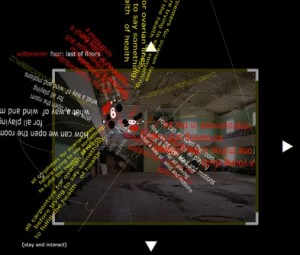 Jason Nelson has built an exhibition of digital poetry interfaces on heliozoa. Nelson writes, “In the simplest terms Digital Poems are born from the combination of technology and poetry, with writers using all multi-media elements as critical texts. Sounds, images, movement, video, interface/interactivity and words are combined to create new poetic forms and experiences. And when a piece like ‘game, game…’ attracts millions of readers while a ‘successful’ print poem might attract a hundred, I think the digital truly is the future of poetry.”
Jason Nelson has built an exhibition of digital poetry interfaces on heliozoa. Nelson writes, “In the simplest terms Digital Poems are born from the combination of technology and poetry, with writers using all multi-media elements as critical texts. Sounds, images, movement, video, interface/interactivity and words are combined to create new poetic forms and experiences. And when a piece like ‘game, game…’ attracts millions of readers while a ‘successful’ print poem might attract a hundred, I think the digital truly is the future of poetry.”
Poetry :: Brianna Joelene Gionet
The beginning of Reincarnation by Brianna Jolene Gionet”
When my grandfather dies-
and comes back as a lion
I already know what he will smell like:
[Published in The Pacific Review]
Handbook for Writers in Prison
 PEN’s Handbook for Writers in Prison features detailed guides on the art of writing fiction, nonfiction, poetry, and screenplays as well as information on punctuation, cover letters, and a list of recommended magazines and journals that consider work for publication. This is an invaluable resource to any incarcerated writer. To date, PEN has distributed 20,000 copies of the Handbook and continues to receive requests.
PEN’s Handbook for Writers in Prison features detailed guides on the art of writing fiction, nonfiction, poetry, and screenplays as well as information on punctuation, cover letters, and a list of recommended magazines and journals that consider work for publication. This is an invaluable resource to any incarcerated writer. To date, PEN has distributed 20,000 copies of the Handbook and continues to receive requests.
If you or someone you know is currently incarcerated, you are eligible to order a FREE copy of the Handbook for Writers in Prison. Workshop instructors who would like to use the Handbook for Writers in Prison for classes are encouraged to purchase copies for only $5.
New Lit on the Block :: Tygerburning Literary Journal
 Tygerburning Literary Journal is a print journal of poetry and poetics produced annually each spring by the MFA Program in Poetry at New England College in Henniker, NH. The journal seeks work that ranges from innovative to traditional lineages by emerging and established poets. Special features of each issue include a DVD presentation of cinepoetry, interdisciplinary works of new media, and spoken poetry performance.
Tygerburning Literary Journal is a print journal of poetry and poetics produced annually each spring by the MFA Program in Poetry at New England College in Henniker, NH. The journal seeks work that ranges from innovative to traditional lineages by emerging and established poets. Special features of each issue include a DVD presentation of cinepoetry, interdisciplinary works of new media, and spoken poetry performance.
There are a limited number of Issue #1 Journals with the DVD of Francesco Levato’s complete award winning cinepoetry selection, War Rug. Copies can be ordered through Marick Press.
Contributors for Issue #1: Kazim Ali, Nin Andrews, Lana Hechtman Ayers, Janet Barry, Tara Betts, Bhisham Bherwani, Sylva Boyadjian-Haddad, Martha Carlson-Bradley, Lee Ann Brown, Laynie Browne, Wendy Burk, Amanda Cobb, Joanna Penn Cooper, Melinda Curley, Stephan Delbos, Chard deNiord, Tenzin Dickyi, Karen Dietrich, Jonas Ellerstrom, Kathleen Fagley, Howard Faerstein, Patricia Fargnoli, Roberta Feins, Adam Fieled, Alice B. Fogel, Laura Davies Foley, Mary Gilliland, Mariela Griffor, James Harms, M.C. Jones, Ilya Kaminsky, Talia Katowicz, Anchia Kinard, Francesco Levato, Sara Lefsyk, Louise Landes Levi, Lesle Lewis, Barbara Lovenheim, Terry Lucas, Erica Lutzner, Mayra MacNeil, Tamara J, Madison, Eric Magrane, Kent Maynard, Tim Mayo, Mary McKeel, Stephen Paul Miler, Malena Morling, Nikoletta Nousiopoulis, Annemarie O’Connell, Ivy Page, Barbara Paparazzo, Alexandria Peary, Jane Lunin Perel, Douglas Piccinnini. Verandah Porche, Kyle Potvin, George Quasha, Steven Riel, Edith Sodergran, Leah Souffrant, Cinnamon Stuckey, K.A. Thayer, Matthew Ulland, Miguel Alejandro Valerio, Mark Watman, and Dorinda Wegener.
Submissions are being accepted for Issue #2 (Spring 2011), edited by James Harms, until December 15, 2010.
Powell’s Books Offers Anne Rice Library Collection
Powell’s Books of Portland, OR acquired and is offering for sale a collection of books from the personal library of legendary author Anne Rice. “Included in the collection are editions signed or annotated by Ms. Rice, and many have her library markings on the spines. The collection showcases her love of literature and writing and reveals a true intellectual curiosity — classic philosophy, the Brontes, biblical archaeology, and Louisiana history are just a few of the subject areas represented.”
Chetnia Bilingual Issue on Chekhov
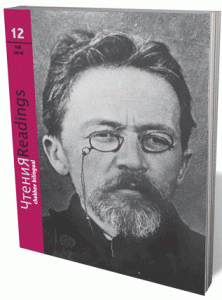 How can one understand what Chekhov is to Russian culture and Russian life? “Only by reading him,” says Tamara Eidelman in the latest issue of Chtenia: Readings from Russia. The Fall 2010 issue is a bilingual focus on Chekhov, including a translation of writing from Ivan Bunin, Russia’s first Nobel Laureate for literature (1933), and several of Chekhov’s stories both in Russian and in English translation: A Horsey Name, A Foolish Frenchman, The Student, The Seagull (excerpt), The Man in a Case, Gooseberries, and About Love. The volume is completed with an essay by Sasha Chyorny, “Why Did Chekhov Quit This Earth So Soon?”
How can one understand what Chekhov is to Russian culture and Russian life? “Only by reading him,” says Tamara Eidelman in the latest issue of Chtenia: Readings from Russia. The Fall 2010 issue is a bilingual focus on Chekhov, including a translation of writing from Ivan Bunin, Russia’s first Nobel Laureate for literature (1933), and several of Chekhov’s stories both in Russian and in English translation: A Horsey Name, A Foolish Frenchman, The Student, The Seagull (excerpt), The Man in a Case, Gooseberries, and About Love. The volume is completed with an essay by Sasha Chyorny, “Why Did Chekhov Quit This Earth So Soon?”
On the Best of Translated Book Awards and Amazon
Chad W. Post responds to Melville House’s Dennis Loy Johnson on the matter of Amazon funding the American Literary Translators Association 2011 Best Translated Book Awards.
Bob Edwards Series on The Library
Bob Edwards (“The Bob Edwards Show” on Sirius XM Radio and “Bob Edwards Weekend,” distributed to public radio stations by Public Radio International) is wrapping up a four-part series this week on libraries: SHHHH… LIBRARIES AT WORK! This week’s segment explores the library’s role in society, and will be available for download on the site after airing. The first three segments are available via download and iTunes.
Part Three focuses on the school library.
Part Two focuses on how libraries and reading can enact change in the lives of patrons and readers, even when change is difficult.
Part One examines the successes and failures of our national library system.
Thema’s Lack of Correspondence the Canary in the Coal Mine
 In every issue of Thema, editors include correspondence from readers. However, in the most recent issue of the publication (Autumn 2010), the editors note that “for the first time in 22 years, no one communicated with us!” I don’t believe this lack of communication is due to any absence of readers, but rather the method of receiving the missives: traditional post. No doubt if Thema were to accept e-mail and text messages (and publish tweets and FB wall scrawls), there would be no lapse in this feedback loop. It seems reflective of the times that the days of letter writing, envelopes and stamps – even for a publications whose readers appreciate the print format – are quickly coming to an end for many.
In every issue of Thema, editors include correspondence from readers. However, in the most recent issue of the publication (Autumn 2010), the editors note that “for the first time in 22 years, no one communicated with us!” I don’t believe this lack of communication is due to any absence of readers, but rather the method of receiving the missives: traditional post. No doubt if Thema were to accept e-mail and text messages (and publish tweets and FB wall scrawls), there would be no lapse in this feedback loop. It seems reflective of the times that the days of letter writing, envelopes and stamps – even for a publications whose readers appreciate the print format – are quickly coming to an end for many.
Freefall Chapbook Contest Winners
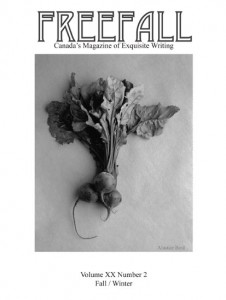 The Freefall 2010 Chapbook Contest Winners – Prose Winner: Flee the Rising Sun by Madelaine Wong and Poetry Winner: A Hundred Pelts by Juleta Severson-Baker – both now have their chapbooks available for purchase on the Freefall website.
The Freefall 2010 Chapbook Contest Winners – Prose Winner: Flee the Rising Sun by Madelaine Wong and Poetry Winner: A Hundred Pelts by Juleta Severson-Baker – both now have their chapbooks available for purchase on the Freefall website.
New Lit on the Block :: Full Metal Poem
 Issuing from Amsterdam and Hamburg, Full Metal Poem is a new print journal of poetry, micro-fiction, art and photography. The production consists of concept and graphic design by Floortje Bouwkamp who is joined by Eliza Newman-Saul for art direction, and content editors Cralan Kelder & Mark Terrill.
Issuing from Amsterdam and Hamburg, Full Metal Poem is a new print journal of poetry, micro-fiction, art and photography. The production consists of concept and graphic design by Floortje Bouwkamp who is joined by Eliza Newman-Saul for art direction, and content editors Cralan Kelder & Mark Terrill.
The inaugural issue of FMP, which comes neatly wrapped in an archery target, was published in June 2010 and includes poetry by Cid Corman, Joanne Kyger, Simon Cutts, Rolf Dieter Brinkmann, Ron Padgett, Harris Schiff, John Wieners. and drawings by the hand of John Casey.
FMP currently solicits all content, but queries are welcome.
Text Tattoos
Misty Harris’s article “Tattoos become new ‘body’ of literature” explores the growing interest in literature tattoos – including a photo of Tess Adamski’s tat of the final paragraph of On the Road with an image of Kerouac at his typewriter. Artists Thomas Thorspecken also featured a sketch of Adamski and her tattoo on his blog analog artist.
Jane Austen’s Fiction Manuscripts Digital Edition
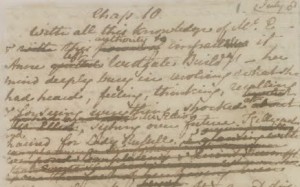 “The Jane Austen’s Fiction Manuscripts Digital Edition gathers together in the virtual space of the web some 1100 pages of fiction written in Jane Austen’s own hand. Through digital reunification, it is now possible to access, read, and compare high quality images of original manuscripts whose material forms are scattered around the world in libraries and private collections. Unlike the famous printed novels, all published in a short span between 1811 and 1818, these manuscripts trace Jane Austen’s development as a writer from childhood to the year of her death; that is, from 1787 (aged 11 or 12) to 1817 (aged 41). Not only do they provide a unique visual record of her imagination from her teenage experiments to her last unfinished writings, these pages represent one of the earliest collections of creative writings in the author’s hand to survive for a British novelist.”
“The Jane Austen’s Fiction Manuscripts Digital Edition gathers together in the virtual space of the web some 1100 pages of fiction written in Jane Austen’s own hand. Through digital reunification, it is now possible to access, read, and compare high quality images of original manuscripts whose material forms are scattered around the world in libraries and private collections. Unlike the famous printed novels, all published in a short span between 1811 and 1818, these manuscripts trace Jane Austen’s development as a writer from childhood to the year of her death; that is, from 1787 (aged 11 or 12) to 1817 (aged 41). Not only do they provide a unique visual record of her imagination from her teenage experiments to her last unfinished writings, these pages represent one of the earliest collections of creative writings in the author’s hand to survive for a British novelist.”
Canada’s Magazines of the Year Honors Two Lit Mags
Congratulations to two of Canada’s literary finest – as recognized by the Western Magazine Awards: Geist received Magazine of the Year – BC/Yukon and Grain received Magazine of the Year – Western Canada.
Let’s Dance – Ten Best Balls in Literature
The Guardian‘s John Mullen picks his Ten Best Balls in Literature – I’m happy to see he expanded the definition a bit to include Stephen King’s Carrie.
Where is the Author as a Personality?
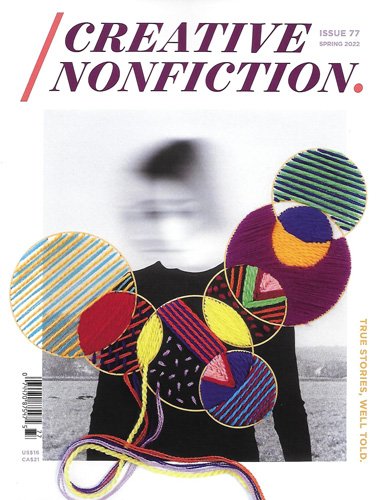 Creative Nonfiction Editor Lee Gutkind reminices about “the author as a personality” and how, in the ever changing word of publishing, he misses this.
Creative Nonfiction Editor Lee Gutkind reminices about “the author as a personality” and how, in the ever changing word of publishing, he misses this.
Audio :: Dana Gioia,”Haunted”
 The newest issue of The Hudson Review (Autumn 2010) includes a bonus CD audio recording of the magazines Writers on Writing series featuring Dana Gioia. The program was hosted by Josephine Reed and aired July 5, 2010. The three tracks include an introduction to the poem, a reading of “Haunted” and an interview.
The newest issue of The Hudson Review (Autumn 2010) includes a bonus CD audio recording of the magazines Writers on Writing series featuring Dana Gioia. The program was hosted by Josephine Reed and aired July 5, 2010. The three tracks include an introduction to the poem, a reading of “Haunted” and an interview.
New Lit on the Block :: Raft
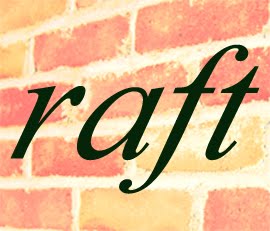 Raft Magazine is a spoken-word literary journal on the web, showcasing poetry, fiction, essays, and book reviews. Editor Brian Seabolt writes: “What is invaluable is the mere excitement of language as material with which to make things, as much sensation as sense, as much a stuff whereby to construct as a codex whereby to construe….It is this excitement that Raft Magazine means to put first and last.”
Raft Magazine is a spoken-word literary journal on the web, showcasing poetry, fiction, essays, and book reviews. Editor Brian Seabolt writes: “What is invaluable is the mere excitement of language as material with which to make things, as much sensation as sense, as much a stuff whereby to construct as a codex whereby to construe….It is this excitement that Raft Magazine means to put first and last.”
The inaugural issue features work by Scott Abels, Niamh Bagnell, Susan Powers Bourne, Ric Carfagna, Jan Carson, Joel Chace, Arkava Das, Mark DuCharme, Iris Jamahl Dunkle, Bonnie Emerick, Michael Farrell, Adam Fieled, Thomas Fink, Vernon Frazer, R. Jess Lavolette, David Mohan, Debrah Morkun, Paul Nelson, Francis Raven, Chad Scheel, Sam Schild, Adam Strauss, Mark Stricker, Samuel Day Wharton, and Karena Youtz.
Books reviewed include new works by Raymond Federman, Leslie Scalapino, and Gilbert Sorrentino.
Raft Magazine seeks new fiction, poetry, literary essays, and book reviews. Each contribution published in Raft is accompanied by a sound file (requested once the work has been accepted), a recording of the author reading the work as he or she wishes it to be heard. Submissions are read year-round; the deadline for issue 2 is December 16, 2010.
The Sketchbook Project
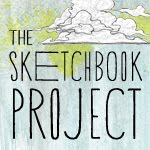 Sponsored yearly by the Art House Co-op (The Brooklyn Art Library), the Sketchbook Project (for a fee) sends out a blank sketchbook to be filled by participating artists. If completed and sent in by the deadline, the book will join others on a tour around the US and then be housed at the Brooklyn Art Library.
Sponsored yearly by the Art House Co-op (The Brooklyn Art Library), the Sketchbook Project (for a fee) sends out a blank sketchbook to be filled by participating artists. If completed and sent in by the deadline, the book will join others on a tour around the US and then be housed at the Brooklyn Art Library.
Each book will be given a barcode so it can be cataloged into The Brooklyn Art Library system. Once cataloged, artists will be able to track where on the tour their book is viewed and how many times someone pulled it from the shelf.
Anyone – from anywhere in the world – can be a part of the project. Artist must order the book online by first selecting a theme from those listed (for example: Things found on restaurant napkins; Dirigibles and submersibles; Coffee and cigarettes). Once chosen, the theme must be adhered to in the sketchbook, and number of participants in each theme is limited.
To participate, artists must sign up by Oct. 31. Finished sketchbooks must be returned postmark by January 15, and the tour begins March 2011. So far, cities on the tour include: Brooklyn, NY; Austin, TX; San Francisco, CA; Portland, ME; Atlanta, GA; Chicago, IL; Washington, DC; Winter Park, FL.
New Lit on the Block :: Telephone
 Editors Sharmila Cohen & Paul Legault have brought about a playfully serious new lit mag: Telephone – “like the children’s game in which phrases change as you whisper them from one person to the next.” The publication features four to five poems from one foreign poet in each issue, which are then translated roughly ten times by multiple different poets and translators. There are no rules about how each poem should be translated and Cohen and Legault solicit a variety of interpretations.
Editors Sharmila Cohen & Paul Legault have brought about a playfully serious new lit mag: Telephone – “like the children’s game in which phrases change as you whisper them from one person to the next.” The publication features four to five poems from one foreign poet in each issue, which are then translated roughly ten times by multiple different poets and translators. There are no rules about how each poem should be translated and Cohen and Legault solicit a variety of interpretations.
The first issues features orginal poems by Uljana Wolf which are then translated by Mary Jo Bang, Priscilla Becker, Susan Bernofsky, Macgregor Card, Isabel Fargo Cole, Timothy Donnelly, Megan Ewing, Robert Fitterman, John Gallaher, Matthea Harvey, Christian Hawkey, Erín Moure, Eugene Ostashevsky, Nathaniel Otting, Craig Santos Perez, Dr. Ute Schwartz, and Uwe Weiß.
Interested in playing? Sharmila Cohen says, “In general, we select and individually solicit all of the translators. That being said, we have an open door policy to suggestions with regard to interesting translators and foreign poets.”
Failbetter Novella Winner Online
Los Angeles writer Lou Mathews was the winner of Failbetter‘s Tenth Anniversary Novella Contest for his work The Irish Sextet: “the heartrending, ultimately redemptive story of a dedicated LA priest whose life is nearly wrecked when he stands up to the Church’s efforts to sweep its pedophilia scandal under the rug.”
Failbetter is running Sextet in serial form on their site — the first two installments, “An Education” and “Corporal Punishment,” are live now, with the other five coming, about one a month, over the course of the winter.
How to Pet a Kitty
 From The Oatmeal – creators of some of the best instructional posters on the planet.
From The Oatmeal – creators of some of the best instructional posters on the planet.
Lopate In Defense of the Essay Collection
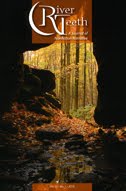 In issue 12.1 of River Teeth: A Journal of Nonfiction Narrative, Phillip Lopate’s essay “In Defense of the Essay Collection” begins: “In these uncertain times for the book trade,when the very future of the printed word seems in question, the one thing certain is that no one wants to publish a collection of essays. Your agent would prefer not to have to sell it, your old publishers don’t want to touch it, and even those pretty young editors who smile enticingly around the buffet table and give midlist authors such as yourself their cards don’t want anything to do with it. Perhaps – perhaps – an essay collection with a focus, a hot topic that will get an author on talk shows, yes, that’s conceivable. But a mere compendium of random essays previously published in magazines, forget it.”
In issue 12.1 of River Teeth: A Journal of Nonfiction Narrative, Phillip Lopate’s essay “In Defense of the Essay Collection” begins: “In these uncertain times for the book trade,when the very future of the printed word seems in question, the one thing certain is that no one wants to publish a collection of essays. Your agent would prefer not to have to sell it, your old publishers don’t want to touch it, and even those pretty young editors who smile enticingly around the buffet table and give midlist authors such as yourself their cards don’t want anything to do with it. Perhaps – perhaps – an essay collection with a focus, a hot topic that will get an author on talk shows, yes, that’s conceivable. But a mere compendium of random essays previously published in magazines, forget it.”
Despite the humorously dismal beginning, Lopate does indeed go on to defend the essay collection (with further poignant humor) and our true – though often publicly inhibited – desire for the form. Lopate is editor of The Art of the Personal Essay: An Anthology from the Classical Era to the Present.
MSR Online Price Reduction – The New Sales Model
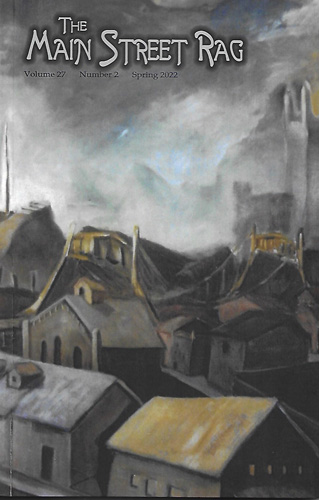 M. Scott Douglas, publisher and editor of The Main Street Rag, writes in the Fall 2010 issue editorial: “…a massive price reduction has occurred for ALL Main Street Rag books bought from the MSR Online Bookstore. The idea is to cut the price in such a way that our books will cost less from the MSR Online Bookstore than they would if bought at a bookstore – even with the shipping.” Douglass recognizes the “fierce competition for shelf space in bookstores” and that even when obtained, “shelf life is fleeting…it’s smarter and more cost-effective to sell at a discount directly to readers than it is to give an even larger discount to bookstores and distributors and never know if you will get paid.”
M. Scott Douglas, publisher and editor of The Main Street Rag, writes in the Fall 2010 issue editorial: “…a massive price reduction has occurred for ALL Main Street Rag books bought from the MSR Online Bookstore. The idea is to cut the price in such a way that our books will cost less from the MSR Online Bookstore than they would if bought at a bookstore – even with the shipping.” Douglass recognizes the “fierce competition for shelf space in bookstores” and that even when obtained, “shelf life is fleeting…it’s smarter and more cost-effective to sell at a discount directly to readers than it is to give an even larger discount to bookstores and distributors and never know if you will get paid.”
Frances Locke Memorial Poetry Award Winner
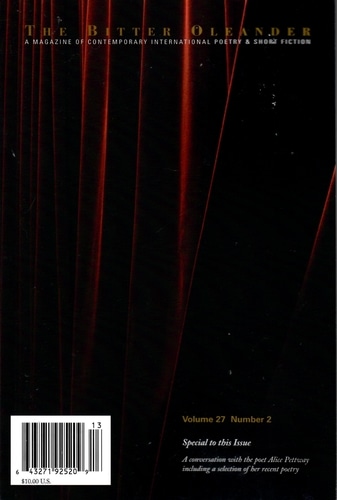 The winning poem of the Frances Locke Memorial Poetry Award for 2010, “Two Ghosts” by Patty Dickson Pieczka, appears in the newest issue of The Bitter Oleander (v16 n2).
The winning poem of the Frances Locke Memorial Poetry Award for 2010, “Two Ghosts” by Patty Dickson Pieczka, appears in the newest issue of The Bitter Oleander (v16 n2).
The 15th annual competition, for which there is a $1,000 cash award, publication in the Fall-2011 Award issue and 5 complimentary copies of that issue, has a postmark deadline of June 15, 2011.
Georgia Review on Raymond Andrews
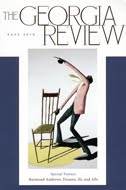 The Fall 2010 issue of The Georgia Review
The Fall 2010 issue of The Georgia Review
includes a special feature on Raymond Andrews: “Dreams, Ifs, and Alls.” This is the first of a multi-part feature on the Georgia-born author (1934 – 91), and is “the most extended focus on an individual writer in the Georgia Review’s Sixty-four-year history.” Included: previously unpublished prose and letters by Raymond Andrews, essay about his life and work, photographs from his family and professional life, and art by his brother Benny Andrews (1930 – 2006).
